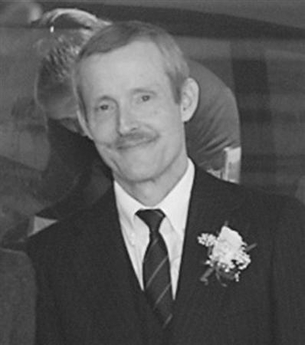
For colleagues, a ‘quiet, giving kind of guy’
Related
Suicide of Scientist Linked to Anthrax Attacks Case Leaves Questions
According to his lawyer, Paul Kemp, Ivins had cooperated with the government’s anthrax investigation for the past six years and his innocence would have been surely established at the trial.
Friends, neighbors and coworkers can’t believe he would have killed himself, much less commit such a crime
Baltimore Sun | Aug 2, 2008
By Stephen Kiehl, Nick Madigan and Gus G. Sentementes
Friends and colleagues expressed shock yesterday that Bruce E. Ivins – an award-winning scientist who played guitar in his church folk group – would kill himself after being targeted in a federal anthrax probe, even as a contrasting portrait emerged of a man who in his final months spiraled into depression and bizarre behavior.
Ivins, who was 62 when he took a fatal dose of Tylenol and codeine Tuesday, had been released from a psychiatric unit last week at Frederick Memorial Hospital. Two weeks earlier, according to court records, he had made “threats of homicidal intent” against a Frederick social worker, who sought and won a protective order against him as federal investigators were closing in.
It was a stunning fall and tragic denouement for a man who had been at the peak of his profession, admired by friends and respected by colleagues. Ivins was considered one of the leading experts on anthrax research and, after the anthrax attacks that killed five people in the fall of 2001, he was called on by the government to assist in the investigation.
Friends and neighbors said he was an avid gardener, an active walker and a volunteer with the Red Cross. Ivins and his wife of 33 years, Diane, had 24-year-old twins, whom they raised in a modest white house with red shutters across the street from Fort Detrick in Frederick, where Ivins worked at the U.S. Army’s institute for infectious diseases.
“Anybody that knew Bruce through his church affiliation is just dumbfounded,” said Bill McCormick, who attended St. John the Evangelist Roman Catholic Church in Frederick with Ivins for 25 years. He said Ivins was a “quiet, giving kind of guy,” and the news that he was about to be charged in the attacks did not fit with the Ivins he knew.
But the Ivins home had been under federal surveillance for the past year, according to a neighbor who saw agents parked outside. Ivins had been cooperating with investigators and answering questions, colleagues said. He was being treated for depression.
“The relentless pressure of accusation and innuendo takes its toll in different ways on different people,” Ivins’ lawyer, Paul F. Kemp, said in a statement. “In Dr. Ivins’ case, it led to his untimely death.”
Kemp asserted Ivins’ innocence and described him as a “world-renowned and highly decorated scientist who served his country for over 33 years” as a civilian microbiologist for the Army.
Two military scientists who had worked closely with Ivins on projects for years, who spoke on condition of anonymity, said yesterday they were stunned and angry that he was being depicted as a suspect in the attacks without hard evidence being released by the FBI. The federal investigation into Ivins was first reported by the Los Angeles Times yesterday.
“Nobody thinks Bruce did it,” said one scientist. He described Ivins as “socially awkward” but he “certainly wasn’t a recluse or a hermit.” He added, “He was kind of a geeky scientist.”
Another colleague said, “I’ve talked to several friends, and we’re all just really sad and shocked. I hate to see him painted as a person who could’ve done this.”
Bonnie Duggan, who lives a few doors down from the Ivins on Military Road in Frederick and had seen the federal agents on the street, was still shocked by the her neighbor’s rapid descent.
“I feel so badly for his family,” said Duggan, an adult-education worker who has lived next to the Ivinses since they bought the 1,500-square-foot house in 1990.
It was just the opposite, she said. Whenever she saw him on the street, he would wave heartily and they would chat. She said he walked regularly, perhaps to help his bad back. When she needed a chain saw for some yard work, Ivins showed up and did the job.
“Bruce was the kind of neighbor that anyone would want to have,” Duggan said.
In Ivins’ hometown of Lebanon, Ohio, people began to suspect last year that Ivins was being investigated in the anthrax attacks. John Zimkus, the town historian, said investigators from the FBI and Drug Enforcement Agency made several visits to the town starting last fall. The agents went to the town museum, looking for old yearbooks and asked questions about the Ivins family home, such as when it was built and who designed it.
Ivins was the son of a Princeton-educated pharmacist, and one of his ancestors had opened a pharmacy in town in 1893, according to a Web site on Lebanon history. The family had deep roots in the small town near Cincinnati.
The federal agents went to the store where Ivins father had run his pharmacy and spent 45 minutes to an hour in the basement, Zimkus said. He described the agents as scouring the background of the Ivins family.
Ivins was the youngest of three boys. His eldest brother, Tom Ivins, said yesterday that their mother “babied” Bruce Ivins and protected him. Tom Ivins, now 73 and living in Middletown, Ohio, said that while he played football in high school, his mother wouldn’t allow Bruce Ivins to engage in contact sports.
“She didn’t want Bruce playing those because she didn’t want him to get hurt,” Tom Ivins said. “I think he ran cross country. Nothing like soccer or football or basketball.”
Full Story
Related
The mysterious deaths of top microbiologists
100 DEAD SCIENTISTS AND MICROBIOLOGISTS – The Master List
Dead Microbiologists: Ongoing worldwide series of killing experts in virus and infections diseases
List Of Dead Microbiologists


